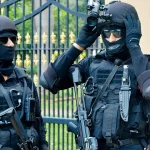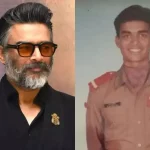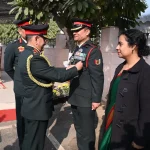The Services Selection Board (SSB) interview is a comprehensive assessment that aspiring candidates must undergo to qualify for a career in the Indian Armed Forces. It serves as a critical filter, aiming to identify those candidates who embody the qualities and attributes essential for leadership and service. However, the selection process is notoriously rigorous, with an overall selection rate hovering around a meager 5-6%. Candidates often grapple with significant challenges during this selection journey, and many ultimately fail to secure a coveted position. So, what are the main reasons for these failures?
Understanding the SSB Interview Process
The SSB interview process comprises multiple stages including written tests, psychological assessments, group discussions, personal interviews, and various physical fitness tests. Each of these stages is designed to evaluate specific attributes, but they collectively aim to assess the candidate’s potential as a future officer. The breadth of topics covered and the skills tested make the SSB process uniquely challenging.
Historical Context
The SSB was formally established in 1948, shortly after India’s independence, with the objective of selecting officers for the Indian Armed Forces. Over the decades, the process has evolved to incorporate modern psychology and group dynamics theories, ensuring that it remains relevant to contemporary military needs. However, despite these advancements, common pitfalls have persisted among candidates. Understanding these failures provides crucial insights into how the selection process can be better navigated.
Main Reasons Candidates Fail the SSB Interview
Lack of Preparation and Confidence
One of the principal reasons candidates stumble during the SSB interview is poor preparation. A staggering 70% of candidates report feeling unprepared for both the content and process, which can severely impact their confidence and overall performance.
Inadequate Preparation
Many candidates enter the SSB with insufficient knowledge of the interview’s intricacies. They often neglect to engage with preparatory materials or participate in mock interviews. As a result, candidates may struggle to articulate their thoughts clearly during group discussions and personal interviews.
- Solution: Candidates are encouraged to invest time in understanding the SSB format through resources like SSBCrack and SSBCrackExams, which offer mock interviews and comprehensive study materials. These resources are instrumental in enhancing knowledge and building rapport with advisers who can guide prospective candidates.
Poor Communication and Observational Skills
Effective communication is another vital competency assessed during the SSB interview. Candidates who falter in this area often create a negative impression, particularly during critical tests such as Picture Perception and Group Discussions.
The Importance of Communication
Communication does not merely involve speaking; it encompasses listening skills, the ability to present ideas clearly, and non-verbal cues. Candidates who lack these skills typically struggle to engage with both the panel and their fellow candidates, which can leave them at a disadvantage.
- Example: A candidate might have excellent ideas during a group discussion but struggle to express them or connect meaningfully with peers. This is quickly noted by assessors and can lead to disqualification.
- Solution: Candidates should practice active listening and articulation through joint study groups or courses that focus on refining communication skills. This can heighten both clarity and confidence.
Dishonesty
Integrity is a core value evaluated by SSB panels. Alarmingly, around 20% of disqualifications can be attributed to dishonesty. This often manifests when candidates opt to exaggerate their experiences or provide rehearsed responses instead of honest reflections.
Consequences of Dishonesty
When candidates try to manipulate facts or fabricate stories, they risk losing the trust of the assessors. Not only does this impact their chances of selection, but it can also affect their confidence levels throughout the process.
- Solution: Candidates must focus on being authentic. Instead of rehearsed responses, they should familiarize themselves with their own experiences and thoughts, reflecting on what genuinely motivates them to serve in the Armed Forces.
Inconsistency Across Assessment Stages
Excelling in specific tasks yet failing others can signal a lack of well-rounded Officer-Like Qualities (OLQs). Candidates who demonstrate inconsistency across tasks are often seen as unsuitable for the demands of military leadership.
The Importance of OLQs
Officer-Like Qualities are attributes such as decision-making, social adaptability, and self-discipline, which are imperative for effective leadership. Candidates must showcase these traits consistently across multiple assessment stages.
- Example: A candidate may perform exceptionally well in physical tests but falter during psychological assessments or group discussions. This inconsistency raises red flags regarding their overall suitability.
- Solution: Candidate preparation must be holistic. Engaging resources such as SSBCrack can help candidates understand OLQs in-depth and offer specialized training to develop these qualities uniformly.
Lack of Awareness and Knowledge
A deficiency in general knowledge and a poor understanding of current affairs can pose significant challenges in personal interviews, where candidates are expected to discuss national and global events.
The Need for Awareness
Candidates who are unaware of pressing issues might struggle to connect with assessors, who often value informed opinions. In many instances, the SSB interview panel seeks not only to evaluate a candidate’s intellect but also their engagement with broader societal concerns.
- Solution: Candidates are encouraged to stay updated with current affairs through reading newspapers, following relevant news channels, or engaging with specific content on platforms like SSBCrack.
Over-acting or Artificial Behavior
Recurrent candidates may tend to adopt exaggerated or artificial behaviors, aiming to project the qualities they believe the SSB is looking for. This approach can often backfire, as assessors are adept at detecting insincerity.
Authenticity in Presentation
Candidates who focus on ‘acting’ rather than genuinely embodying the desired traits tend to create an unnatural impression that can detract from their overall assessment.
- Solution: Emphasis should be placed on introspection and self-awareness. Knowing one’s own strengths and weaknesses can help candidates present themselves authentically, which is ultimately more appealing to assessors.
Statistical Data and Research Insights
The SSB’s rigorous selection process is underscored by impressive statistics. As mentioned, only about 5-6% of candidates who appear for the SSB interview are eventually selected. Of the disqualified candidates, innumerable feedback sessions reveal common patterns:
- Approximately 70% of candidates cite feelings of unpreparedness.
- Around 20% are disqualified due to dishonesty.
- General awareness and knowledge gaps are increasingly prevalent in assessments.
These statistics highlight the increasingly competitive landscape and underscore the significance of thorough preparation.
Comparative Analysis: Success Stories vs. Failure Patterns
While failure is common, examining success stories can shed light on key attributes that differentiate successful candidates from those who do not make the cut. Successful candidates often exhibit:
- Proactive Engagement: They seek guidance from experienced individuals, take feedback seriously, and constantly work on improving aspects of their performance.
- Resilience: Successful candidates possess the ability to bounce back from setbacks. They view failures as learning opportunities rather than endpoints.
- Comprehensive Preparation: They engage with varied preparatory resources, including study materials, online courses, and group workshops.
In contrast, candidates who tend to fail often exhibit a lack of engagement with these practices and neglect the importance of holistic development.
Challenges and Proposed Solutions
Challenge 1: High Anxiety Levels
Many candidates deal with extreme anxiety, which can derail their performance during the SSB interview.
Proposed Solution
Practices such as mindfulness, meditation, and even physical exercise can play a critical role in helping candidates manage stress. Engaging in mock interviews with friends or mentors familiar with the process can also help candidates build confidence.
Challenge 2: Misinformation and Misconceptions
Many candidates are guided by misconceptions about the selection process, leading to misguided preparation efforts.
Proposed Solution
Accurate information is key. Candidates should rely on credible sources like SSBCrack, which provides comprehensive guides and information to clarify these misconceptions.
Challenge 3: Physical Fitness Concerns
Some candidates may struggle with the physical fitness requirements expected during the selection process, impacting their overall performance.
Proposed Solution
Establishing a fitness routine ahead of time and consulting professionals can help candidates meet these demands and improve their physical performance.
Future Trends and Predictions
As the nature of military responsibilities evolves, the SSB selection process is likely to adapt further. A marked emphasis on psychological resilience and adaptive leadership could redefine the core competencies considered essential. Candidates might also face enhanced scrutiny regarding their adaptability to modern warfare and technology.
Moreover, with the advances in digital and AI technologies, remote assessments could gain traction, enabling candidates to interact anonymously with panels or undertake portions of their interviews via virtual platforms. This shift may increase access but also require candidates to navigate new complexities.
Conclusion
In conclusion, succeeding in the SSB interview necessitates a comprehensive, well-rounded approach to preparation. Candidates often fail due to inadequate preparation, poor communication skills, dishonesty, inconsistencies across assessment stages, and lack of knowledge about current affairs. By focusing on these pitfalls and taking proactive measures—such as engaging with resources like SSBCrack for mock interviews, training in effective communication, and being genuine in responses—candidates can noticeably improve their chances of success.
The SSB interview is more than merely a test; it is a reflection of a candidate’s readiness to embody officer-like qualities and lead honorably in service to the nation. With thorough preparation and a genuine approach, aspiring candidates can turn the odds in their favor, thus transforming dreams of serving in the Armed Forces into tangible reality. Therefore, equip yourself with the right resources, remain honest and open throughout the process, and step into your SSB interview journey with confidence.












